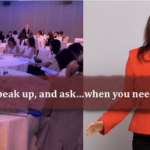
920 Views
‘Gut Feeling’ is the secret advantage – are you in tune with it?
Is Gut Feeling Real?
‘Gut Feeling’ is a topic that is highly debated and looked at on the internet. Google gives over 11 million results on the topic in less than 60 seconds! Gut feeling is arguably the familiar feeling that refers to the overused cliché “butterflies in the stomach”. The question then arises is, does the random and intangible information conveyed by The Gut Feeling make sense & does it have any logic or scientific explanation?
Science behind Gut Feeling
Underlying the sensation of ‘butterflies in stomach’ is a frequently unnoticed web of neurons lining our guts that is so widespread that some scientists have named it our “second brain”. This mass of neural tissue is filled with essential neurotransmitters and consists of coverings of neurons embedded in the walls of the long tube of our gut and contain around 100 million neurons, which is more than in either the spinal cord or the peripheral nervous system. These neurons in the enteric nervous system help us understand the information stored in our gut and enable us to interpret the same as – a gut feeling. So much so that the wisdom of information collected during our lifelong learning is stored in this primitive circuitry.
Gut sense conveys data, though obscure, collective and intangible. It gives us collective information about a situation, and a holistic understanding of it, such as whether a potential business partner would be trustworthy. That’s important information, gathered in a very vague and indefinable form collectively called – ‘ intuition or gut feeling’!
Gut Feeling & Decision Making
‘Gut feeling’ is essential in decision-making among business leaders, even when plenty of data is available. Tough people rely on both – evidence and intuition during decision-making; since ‘gut feeling’ tends to be based on experience, it can be a helpful “warning sign” that something has gone wrong with the analysis.
As per Antonio Damasio, a neuroscientist at the University of Southern California and head of the Brain and Creativity Institute – “Rather than being opposed, emotion and reason are deeply interrelated: if you’re going to make sound and rational decisions, you need to have first done prior accurate emotional processing. If you have done such processing, then your emotions accelerate your decision-making—in the form of intuitions, hunches, and gut feelings. ”
But shall we simply follow our gut feeling when it comes to rational decision-making?
Well, at times, we over generalize and associate pain/pleasure experienced in the past to similar objects or situations and may end up making decisions based on the same. As per Daniel Goleman, “The best business decisions take into account all the numbers and facts on the table, and then something from beyond the table: the brain’s total understanding of a deal. Specifically, we need to sense our gut feeling.”
Great Leaders are increasingly self-aware, can understand and interpret their emotions efficiently, are intuitive, get gut feelings, derive information from life wisdom stored in neural circuitry and make collective use of all the information in hand before making a decision.
In the current age, where we are inundated with information and are often pressed against time to take decisions, being in tune with our intuitions by developing greater self-awareness can be highly advantageous and be a great strength in moments of crisis!
– Preeti Dubey Founder, Director
STRIVE HIGH – Soft Solutions For Tough Problems!
Like us on Facebook, Follow us on Twitter.
Through our customised Workshops, Training and Coaching, we help clients enhance the social and emotional competencies necessary to achieve their Professional and Personal Goals.
Our training solutions and transformational workshops on Emotional Intelligence are designed to help our clients to :
Discover ‘social & emotional strengths and weaknesses’, and understand the impact of the same on personal and professional lives.
Develop innate capabilities into core strengths.
Learn to navigate through challenging situations with ease.
- Enhance conflict management, stress management, and communication skills.
- Develop leadership skills – learn to inspire others by building emotional connection utilising the strongest energy that moves people instantly and builds sustainable synergies.
“Emotional Intelligence is more than twice as predictive of business performance than purely cognitive intelligence and is more predictive of business performance than are employee skill, knowledge and expertise” -Gerald Mount.
SOLVING PEOPLE ISSUES IS OUR BUSINESS !


fsddg
Test